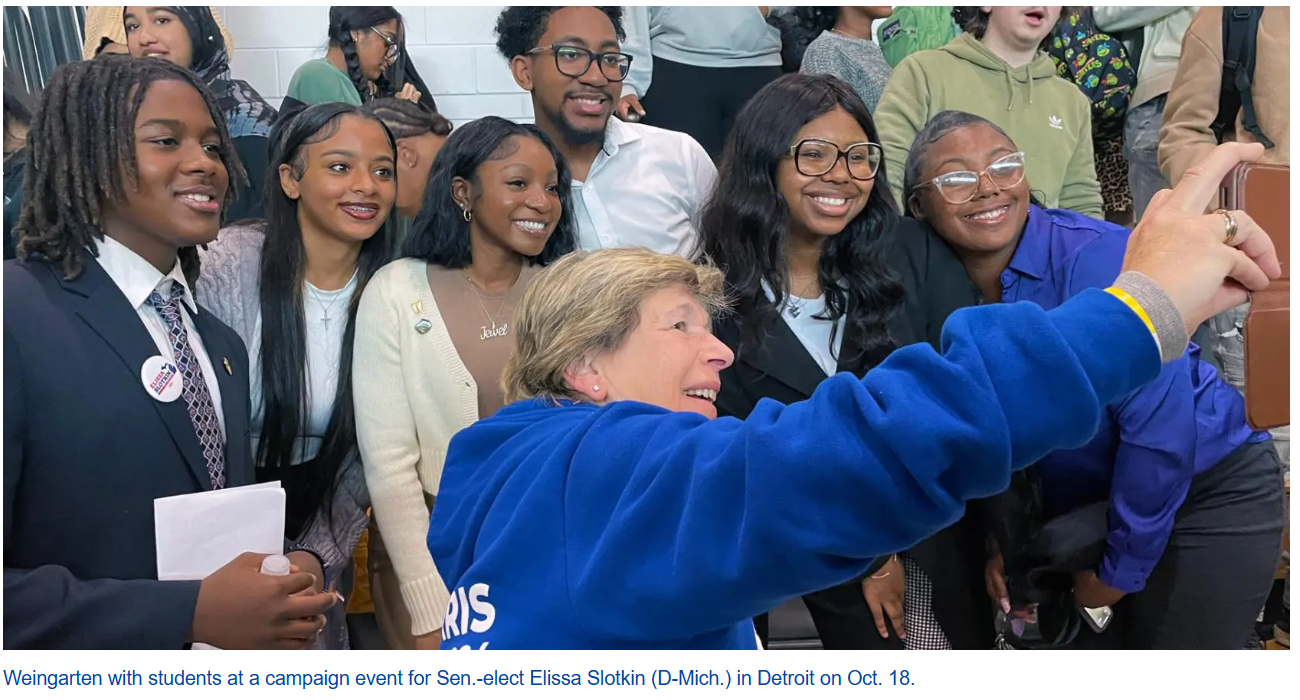The rush to explain the results of the 2024 presidential election is on. How did Donald Trump reclaim the White House? Was it gender divides? Swaying young voters? Culture wars? Winning more of the Hispanic vote? Elon Musk? Podcasts? The manoverse? All may have been factors, but we know that the economy was top of mind for most Americans—and that when voters feel the cost of housing, gas or eggs is too damn high, they traditionally punish the incumbent party. Despite all the Biden-Harris administration’s economic successes and Kamala Harris’ proposals to address the cost-of-living crisis, in the end, she could not overcome the fear and anxiety working families felt.
The Biden-Harris administration guided the country to the strongest post-COVID-19 economy in the world. Wages are up, inflation has cooled and most economic indicators are improving, yet many Americans are still feeling the aftershocks of the pandemic (and even the 2008 recession). The bottom line is that everyone is an expert on their own experience, and when people suffering economic stress hear how “good” the economy is, they feel gaslit and forsaken.
In the months leading up to the election, I crisscrossed the country, talking to people about their hopes and concerns. Many felt a loss of control and that things were getting worse, reflecting a long-standing trend: The percentage of Americans earning more than their parents has been steadily decreasing over the last 80 years, and wages for production jobs have sunk below other sectors for the last four decades. This has inflicted psychic wounds on a country that long believed each generation would do better than the last.
Trump tapped into that anxiety with a shrewd ability to connect with voters and to expand beyond his base. He said he could fix people’s problems and promised voters that if they returned him to the White House, “inflation would vanish completely.” Yet most mainstream economists say that Trump’s proposals won’t conquer inflation, they will make it much worse.
Trump made gains with the majority of Americans who are not college graduates. Sixty percent of high school graduates in the U.S. don’t go to college, but that shouldn’t mean the American dream is out of their reach. The AFT is working to transform high schools and community colleges so all young people have pathways to highly skilled, high-wage careers right out of high school. Eighty-two percent of voters support increasing government funding for skills training, and career and technical education programs are popular with both Democratic and Republican leaders, so it’s no wonder that Trump has made project-based learning, apprenticeships and career counseling a big part of his education program.
Americans support the two engines of opportunity at the core of my union—the labor movement and public education. Voters approved school funding measures across the country, and they rejected or repealed school voucher proposals everywhere they were on the ballot. Americans don’t need a strongman promising to “fix” their lives. They need a great education and a union contract so they can get ahead, build the middle class and ensure that communities can rise together.
We will soon see whether Trump follows through on his populist promises, or if he does the bidding of the billionaires whose shadow campaign helped put him back in office.
I know what we will be doing—fighting for commonsense solutions for a better life for America’s working and middle classes, striving to ensure that all of God’s children are treated with respect and dignity, and working for safe and welcoming schools and for an economy that benefits all. We will be advocating for people to ensure they have decent healthcare, wages and retirement security, and are able to take care of their families—with child care, paid leave and home care for elderly parents. We will be fighting to strengthen public schools, for a new deal in higher education, and the right of Americans to belong to a union. And we will be pushing to lower everyday costs. That’s why last week, we were fighting for Social Security fairness through the repeal of the Windfall Elimination Provision and Government Pension Offset, which hurt so many retirees.
I worry about the country slipping backward to another Gilded Age, but I know our country can move forward to ensure every American can have a pathway to a better life. One thing is certain: Educators, healthcare professionals and public employees will continue doing everything they can to make a difference in the lives of the people they serve. Our guiding principle remains fighting for our children’s future and the promise of America.

